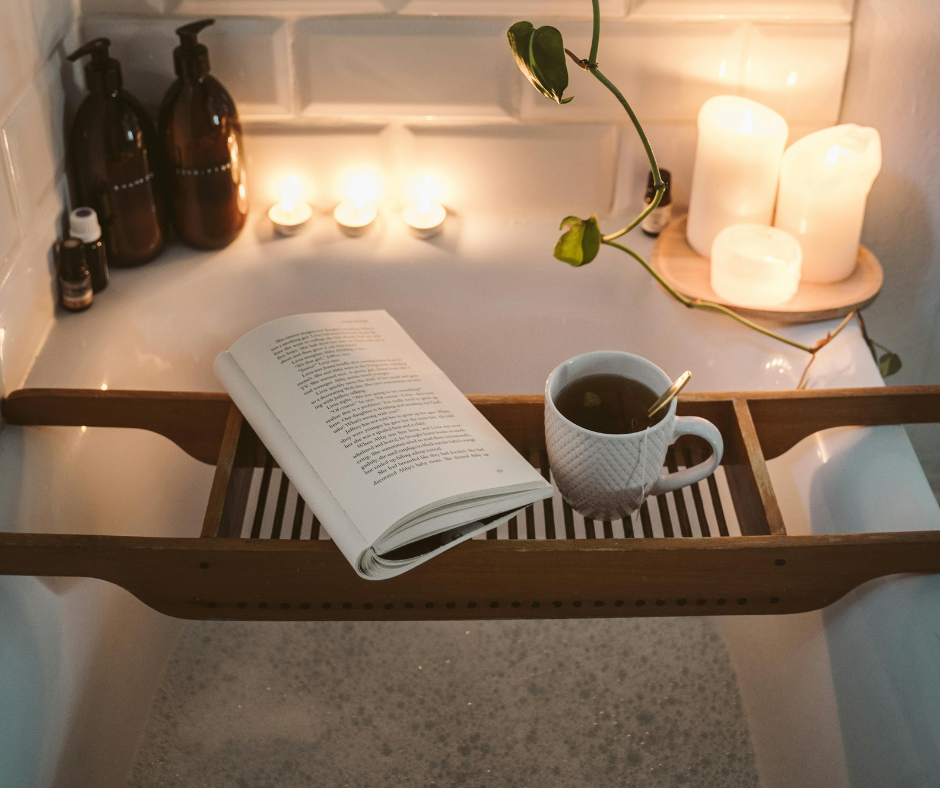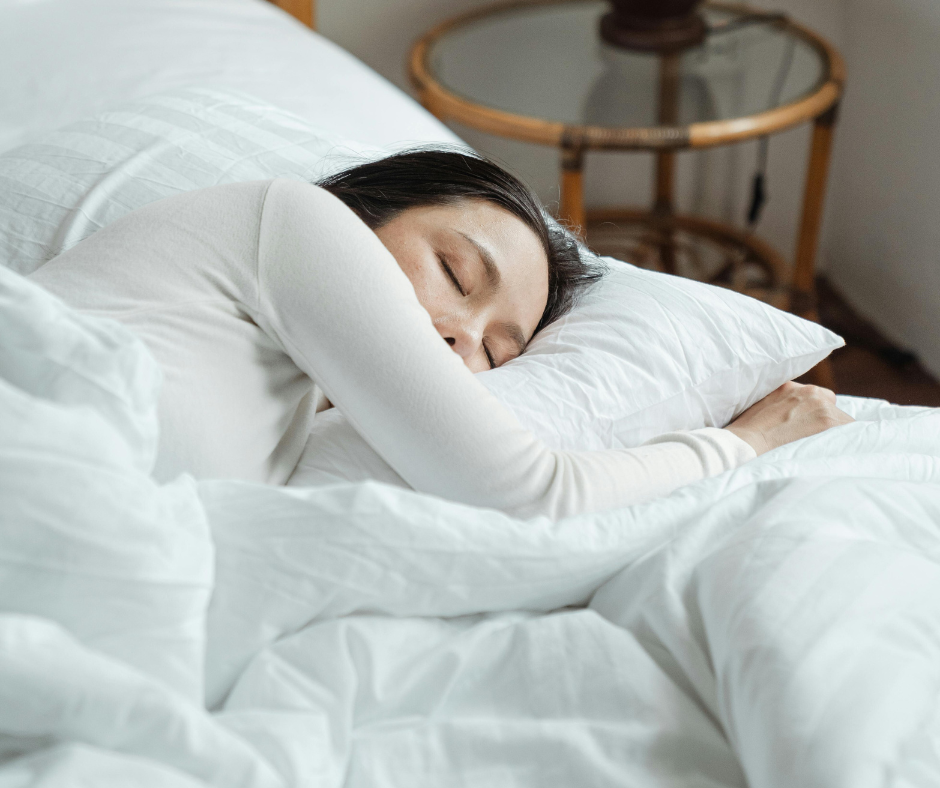Despite having rough nights and bad morning wake up calls, most of us don’t know how to get better sleep! Sleep is one of the most critical habits that affects the mind. It not only allows us to rest but enables us to have normal cognitive function. Without it we start to feel tired, we can’t think properly and, in some cases, we start to slur our speech or overthink things. There can also be long term effects if you are unable to sustain healthy sleep over an extended period of time.
Luckily, there are healthy habits and tasks you can do to manage your sleep better. This will allow you to get a full nights rest and wake up feeling refreshed each morning. Good quality sleep also helps to mitigate the effects of anxiety and depression. There is nothing worse than having a tired body and mind while you are trying to fight mental illness. It only adds to the problem. So, here are ten ways you can manage your sleep at home!
1. How to get better sleep with a consistent sleep schedule
Funnily enough, most of us find it easier if we live our lives on a schedule. We go to work at a certain time, drop the kids off at a certain time and come home at a certain time. Everything is scheduled so we know what to do and when. The same goes for your sleep. Instead of going to bed whenever, you should set a schedule and even follow it on the weekends. This will ensure you get a healthy nights rest.
In saying that though, if you feel tired you should rest when you need to. If you have had a long, hard day and your body is telling you that you need sleep do it. Just make sure that it doesn’t disrupt your regular sleep cycle. Sometimes too much of a good thing can be just as bad as not getting enough.
2. Create a sleep-friendly environment
When you are trying to sleep there is nothing worse than an environment where you can’t settle down. Maybe there is too much noise, maybe it’s too bright or it might be too hot or cold for you to get comfortable. This can leave you staring at the ceiling for hours wondering what the heck is going on.
So, before you go to bed, make sure that your room is nice and dark. Make sure it is quiet (if you need to kick your partner out for snoring do so!) Ensure you have the temperature set just right and even put fresh sheets on the bed to help you relax. This will help you feel safe, cozy and snug so you can drift off into bliss for the night!

3. Avoid stimulating activities before bed
Your brain is being stimulated all day. There is no need to add more before bed because you won’t be able to shut off and get your Melatonin pumping. This will inevitably leave you wide awake and pacing the house until the clock strikes midnight. You definitely don’t want that!
Therefore, it is important to limit your exposure to ALL screens. Phones, tablets, TVs, you name it! Instead engage in relaxing activities such as reading a good book or taking a warm bath with magnesium salts to help relax your muscles. You can even do stretching, yoga or meditation to help calm your mind and promote relaxation. Listening to soft music and lying on the bed or listening to a quiet audio book is good too!
4. Limit caffeine and alcohol intake
Most people don’t need to be told that caffeine forces your mind to wake up and get going. Therefore, it is a terrible choice to consume before bed! Alcohol is just as bad, if not worse, because the sugars will have you jumping off the walls at night! Alcohol is also a depressant, which is not a good thing to consume if you are suffering from anxiety or depression symptoms. If you combine that with lack of sleep, you have a cocktail for a waking nightmare.
On the bright side there are other drinks you can have before bed instead of these. Water is the obvious choice, but you can also mix it with a magnesium powder to promote relaxation. This will ensure the habit of consuming fluids before bed is a positive one and helps your sleep.
5. How to get better sleep with exercise
This seems counterproductive but does actually help your sleep if done in the right way. Exercising during the day can help remove any excessive energy your body has built up. This will allow you to feel tired enough that you fall asleep comfortably when it comes to bed time.
However, just make sure that you don’t do exercise right around the time that you are supposed to go to sleep. This is because it might have the opposite effect where you feel pumped up instead of tired and spent. Then you won’t be able to rest the way you want to.

6. How to get better sleep with your own bedtime routine
Running around like a headless chook never got anyone anywhere! If you are doing all these random things before bed your mind is going to be wondering what is going on. This means that you will stay alert and won’t be able to settle yourself enough to relax and doze off.
Because our brains work in such mysterious ways, having a bedtime routine is one way of tricking the mind into relaxing itself. Practicing relaxation techniques, reading or even having a bath then brushing your teeth can set you up for a good night’s sleep. The important thing is that you stick to your routine! By doing this, we start feeling tired enough to get into that dream state we all crave.
7. Ensure you have the right bed
Sleeping on a poor quality mattress will have you tossing and turning in the night then waking up sore. Even your pillows can leave you with aches in your neck and if the sheets are stuffy, you may be sweating all night. Gross!
So, make sure you invest in your sleep! Buy a quality mattress that suits you, get comfortable pillows and spend the money on soft, breathable sheets. Your mind and body will thank you later with replenished energy and a wakeful, functioning mind!
8. Avoid napping late in the day
With the energy we spend on our daily lives, most of us feel drained and tired all the time. That’s why you keep nodding off, because the body wants to take a nap. This can be a bad thing if you let it disrupt your sleep cycle. However, you should not ignore what your body is telling you.
If you feel that you do need a nap, make sure that you keep it short. Say 30 minutes? Set an alarm if you have to. Also avoiding napping too close to bedtime. If you are two or three hours away from sleep then keep yourself awake. Just don’t turn to caffeine to do it! This will ensure that you are sleepy enough to get the deep, restorative rest you need.

9. How to get better sleep by managing your stress
Stress is one thing you definitely want to avoid when you go to sleep. It can leave you overthinking, cause anxiety and keep you up all night. The lack of sleep will then make it worse because you are tired and now you are stressing over that. Then, in the morning, you are still tired and even more stressed because you have to get up for the day. It’s a terrible cycle to be in!
That means it is essential for you to find healthy ways to manage your stress. You can go for a walk or do some exercise earlier in the day to release some of the tension. You can also practice mindfulness to help you relax or do some journaling to get those circling thoughts out of your head. If that doesn’t help then seeking support from a therapist or counsellor can be beneficial as well.
10. Avoid heavy meals and fluids before bed
Eating a large meal or consuming excessive fluids close to bedtime can disrupt your sleep. This is because your body is then processing what you have consumed while you are trying to rest. If you eat too much you could have a stomach ache or sugary foods could keep you up at night. Lots of fluids will also have you jumping up out of bed to relieve yourself.
Therefore, if you are hungry and do need to eat something then go for a light snack. Something like carrot sticks or a couple of crackers can tie you over until the morning. Limiting your fluids is also a good idea. Just have a cup of water about half an hour before bed so you get to the bathroom before you sleep. This will stop the toilet breaks in the middle of the night.
Quality sleep ensures you stay healthy
Getting good sleep ensures that your mind and body get the proper rest they need. This will help you to avoid short term and long term health problems related to sleep deprivation. Some symptoms, of which, may include constant fatigue or feeling lethargic. You may have a shift in mood, which makes you irritated or stressed. You might also start to experience anxiety and low motivation because of a lack of sleep.
The important thing to remember is to look after yourself! Everything else comes second. Your work, your chores, that event, everything! This is because your health is directly connected to your life. Without it, you won’t have a life. You won’t be able to do the things you really wanted to do. So take care of yourself so you have more time on this earth to enjoy it!
Please be advised this information may help but is NOT a replacement for professional health advice. If you are feeling unwell please speak to a medical professional.



